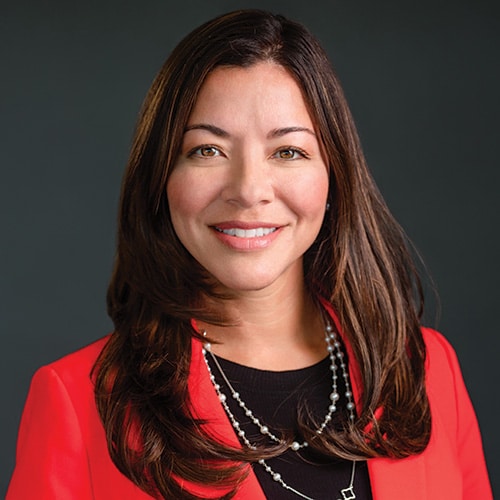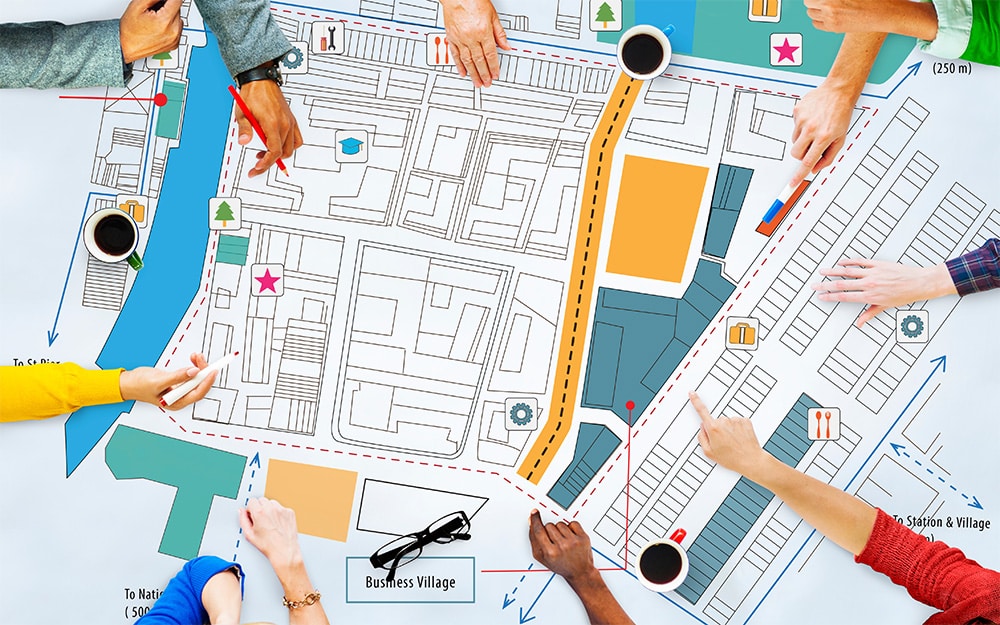Home » Board Perspective » Carrying the Torch
Board Perspective
Carrying the Torch
Adobe Firefly; AI Generated Image
“There are two kinds of people: those who do the work and those who take the credit. Try to be in the first group; there is less competition there.”
—Indira Gandhi, former prime minister of India
The path to success unquestionably requires the courage to lead, the ability to guide, and the humility to recognize the unknown.
In June of this year, I will be honored to assume the chairmanship of the International Parking & Mobility Institute (IPMI). This is a pivotal time for the parking, mobility, and transportation industries. Swift technological advances, changes set in motion by the COVID-19 pandemic, and accelerated urban growth driving global change have shaken these industries to their core.
As I take the reins of IPMI, I look at the two years ahead with optimism and exhilaration largely because of the extraordinary foundations laid by my predecessor, Gary Means, CAPP. He is a best-in-class industry professional, and I am fortunate to have served the Board under his leadership. Thank you for laying the path to continued success!
I am equally excited about the industry metamorphoses and the ability to steer the Board in setting the strategic direction and long-term strategy that will catalyze growth, economic prosperity, and social vitality for future generations.
Nowadays, more than ever before, scanning the landscape ahead is the cornerstone of stewardship and good governance. A farsighted vision will judiciously prepare the IPMI Board to face the future. The Board has the right balance of skills, knowledge, diversity, and geographic representation to inspire strategic discussions, transparent and independent expressions of opinions, and collaboration.
Board members must remain aware of farsighted global disruptions and their inherent opportunities and challenges. With rapid technological innovation, economic volatility, and explosive urban growth, the Board must remain flexible and agile to thrive and succeed in an unpredictable global ecosystem. Successful farsighted boards work collaboratively and keep a long-term view of the future while preparing for and calibrating the potential impact of risks, opportunities, and challenges on their stakeholders.
One of the Board’s responsibilities is exploring evolving innovative concepts and paradigms that can disrupt traditional business models. In the specific case of parking, the meteoric speed with which innovative technologies emerge and become obsolete cannot keep pace with the legislative policies required for their implementation. This scenario represents a challenge for parking professionals. Efforts to stay legislatively on par with these innovations should be a top priority for IPMI since they are aligned with the public’s economic progress and social vitality.
It is no secret that I have an unwavering passion for IPMI and a high respect for the abilities and talent of its Board of Directors. With that in mind, I will strive to accentuate these attributes and seed and grow ideas and perspectives. In 2006, Stanford University psychologist Carol Dweck, Ph. D., introduced a simple but revolutionary idea: the power of mindset. Her research indicated how we think about our talents and abilities determines our success in every human endeavor. Other points suggest that board directors with a growth mindset are passionate about innovating, learning, reasoning skills, and an achievement drive that will spur them to action.
This growth mindset can dare visualize creative concepts such as public-public partnerships and the more traditional public-private initiatives. While the IPMI Board’s duties do not call for formulating policies for these initiatives, it is nonetheless responsible for furthering a vision that aligns parking with future urban trends.
As cities grow exponentially in the U.S. and worldwide, best-in-class urban planning will no longer support stand-alone public parking structures. Every inch of city space will need to include various uses to respond to the needs of future urban dwellers. Public-private partnerships can play a role in maximizing the opportunities to build mixed-use public parking facilities near transit-oriented communities to respond to a dire national need for workforce and affordable housing.
In the same breath, transformative public-public partnerships, such as the case of Miami Parking Authority and the city of Doral in South Florida, are creating a new playbook allowing municipal governments to access the expertise, workforce, and resources of a well-established parking organization to streamline the management of parking facilities, increase pedestrian and vehicular safety, improve mobility, and generate revenues. Ultimately, this is a collaborative effort that benefits the community.
Moreover, the Board can also make strides in cultivating existing industry talent and building the pipeline for the future pool of parking professionals. They will become the leaders of tomorrow and will write future parking and mobility playbooks.
In sum, I am excited and ready to work hard in close collaboration with my Board colleagues and the excellent IPMI staff, without whom the task at hand would not be possible. Innovation and creativity in the parking and mobility industries can transform people’s lives and shape society’s future. ◆
Alejandra “Alex”Argudin, CAPP, is Chief Executive Officer for the Miami Parking Authority and the Chair-Elect for the Board of Directors for IPMI.
- Alejandra “Alex” Argudin, CAPPhttps://parking-mobility-magazine.org/author/alejandra-alex-argudin-capp/December 2, 2021
- Alejandra “Alex” Argudin, CAPPhttps://parking-mobility-magazine.org/author/alejandra-alex-argudin-capp/March 3, 2022
- Alejandra “Alex” Argudin, CAPPhttps://parking-mobility-magazine.org/author/alejandra-alex-argudin-capp/November 15, 2022













